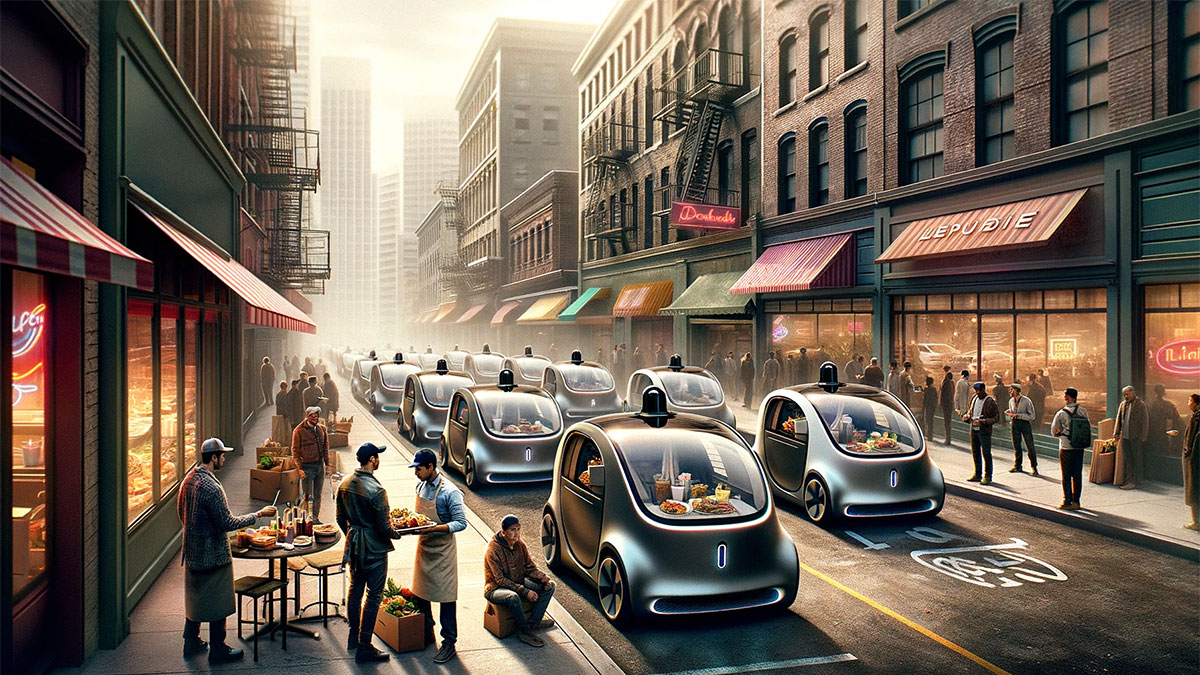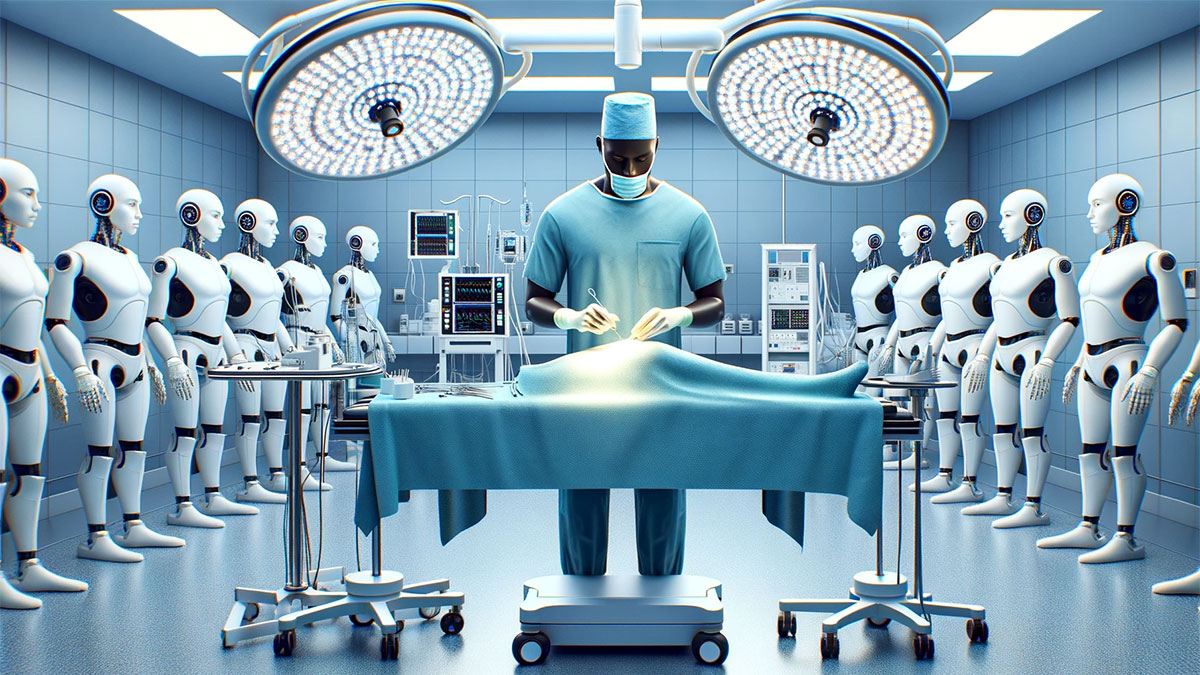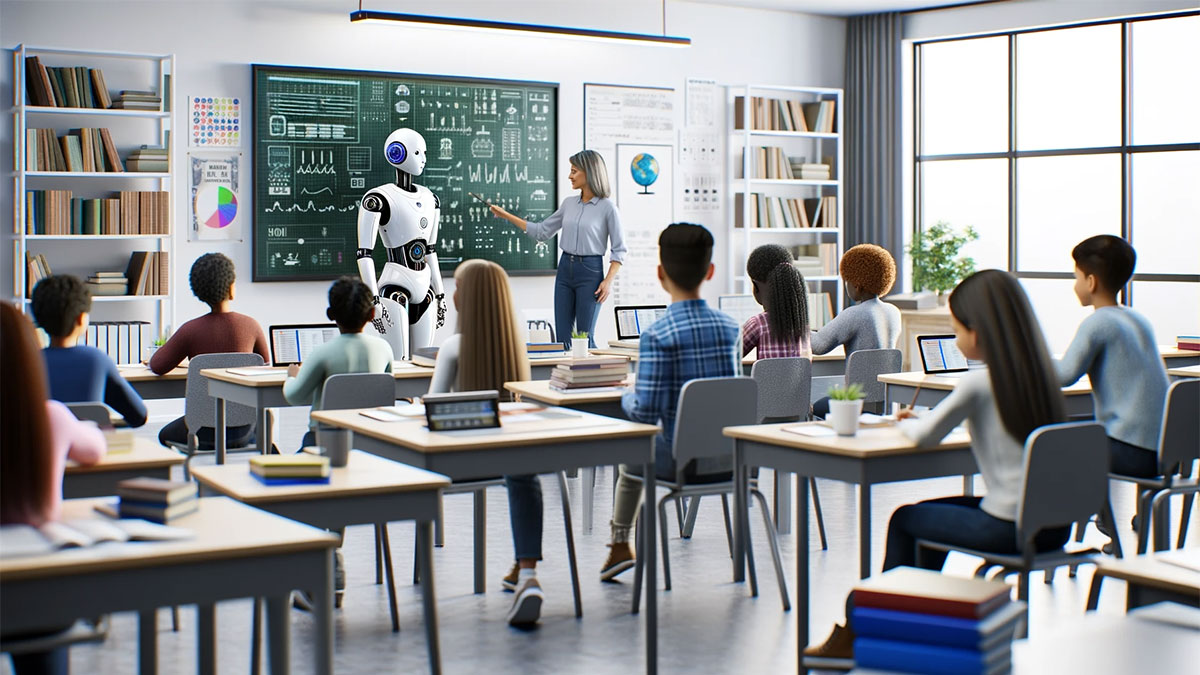Artificial intelligence has revolutionized the way we live and work. While AI has brought about many benefits, there are concerns about its impact on the labor market. The question of whether AI poses a threat to human job security has become a topic of debate in recent years.
Key Takeaways
- AI and automation have the potential to increase productivity and efficiency in the workplace, but they also have the potential to displace workers.
- The threat to job security is a major concern when it comes to AI, as the technology can perform tasks that were previously thought to be exclusively human.
- While some jobs are more at risk than others, the impact of AI on the labor market is a topic of concern for many, and the role of education and training, as well as regulation and accountability, will be important in mitigating the potential negative effects of AI on human job security.
Understanding Artificial Intelligence and Automation
AI and automation are two of the most transformative technologies of the modern era. They have the potential to revolutionize the way we work, live, and interact with one another. AI refers to the ability of machines to perform tasks that would normally require human intelligence, such as learning, reasoning, and problem-solving. Automation, on the other hand, refers to the use of machines to perform tasks that would normally require human labor.
AI and automation are often used interchangeably, but they are not the same thing. AI is a subset of automation, and it involves the use of algorithms and machine learning to analyze data and make decisions. Automation, on the other hand, involves the use of machines to perform repetitive tasks that would normally be done by humans.
One of the main benefits of AI and automation is increased efficiency. Machines can work faster and more accurately than humans, and they don’t require breaks or time off. This can lead to significant cost savings for businesses, as well as increased productivity and output.
There are also concerns about the impact of AI and automation on human job security. As machines become more advanced and capable, they may be able to perform tasks that were previously done by humans. This could lead to job displacement and unemployment, particularly in industries that rely heavily on manual labor.
It’s important to note that AI and automation are not inherently good or bad. They are tools that can be used for both positive and negative purposes. The key is to ensure that they are used in a responsible and ethical manner, with consideration for their impact on society as a whole.
AI and automation are likely to have a significant impact on the future of work. While there are concerns about their potential to displace human workers, they also have the potential to increase efficiency, productivity, and innovation. It will be important for businesses and policymakers to carefully consider the implications of these technologies and work together to ensure that they are used in a way that benefits everyone.
AI and the Labor Market
Artificial intelligence has been a hot topic in recent years, with many people wondering whether it poses a threat to human job security. While some jobs may be at risk of displacement, the impact of AI on the labor market is not as straightforward as many people believe.
According to the Organization for Economic Co-operation and Development (OECD), employment in OECD countries has risen despite the increasing use of automation and AI. In fact, forthcoming OECD research finds no suggestion that automation leads to the overall contraction of employment. This is because the forces at play do not only destroy jobs, they also create and transform them. Therefore, it is important to note that the impact of AI on the labor market is complex and multifaceted.
While some jobs may be at risk of displacement due to automation and AI, there are also new jobs being created in areas such as data analysis, software engineering, and machine learning. In addition, AI can help increase productivity and efficiency in many industries, which can lead to job growth in other areas.
It is also important to note that not all jobs are at equal risk of displacement. Jobs that involve routine tasks, such as data entry, are more likely to be automated than jobs that involve creativity, critical thinking, and interpersonal skills. Therefore, individuals need to develop skills that are complementary to AI, such as creativity, problem-solving, and emotional intelligence.
While AI may pose a threat to some jobs, it is not necessarily a threat to human job security overall. The impact of AI on the labor market is multifaceted and complex, and individuals and organizations need to adapt to these changes by developing new skills and embracing new opportunities.
Industries at Risk
As the use of Artificial Intelligence continues to expand, many industries are at risk of losing jobs to automation. Occupations that rely on repetitive tasks, such as data entry or assembly line work, are particularly vulnerable. Services that rely on human interaction, such as customer service, may also face significant changes.
The manufacturing sector is one of the most at-risk industries. AI can be used to automate many tasks that were previously performed by humans, such as quality control and assembly line work. This could lead to significant job losses in the industry. However, it is important to note that AI can also create new jobs, such as those related to developing and maintaining the technology.

Customer service is another area that is at risk of significant changes due to AI. Chatbots and virtual assistants are becoming increasingly common, and these technologies can handle many of the tasks that were previously performed by human customer service representatives. While these technologies can improve efficiency and reduce costs for companies, they may also lead to job losses in the industry.
AI has the potential to significantly impact many industries and occupations. While some jobs may be lost to automation, new jobs may also be created. It is important for companies and individuals to stay informed about the potential risks and benefits of AI, and to be prepared for the changes that may come as a result of this technology.
Impact on Businesses and Productivity
Artificial intelligence is transforming the way businesses operate, and while it presents opportunities for increased efficiency and productivity, it also poses significant risks to human job security.
One of the most significant impacts of AI on businesses is the potential to disrupt traditional industries and business models. As AI technology continues to improve, many jobs will likely become automated, leading to significant job losses in some sectors. This could have a significant impact on the economy, as well as on the lives of workers who may find themselves out of work.
It’s important to note that AI can also create new job opportunities in areas such as data analysis and software development. Additionally, AI can help businesses to increase productivity by automating repetitive tasks, freeing up employees to focus on more complex and creative work.
Another potential impact of AI on businesses is its ability to improve the quality of products and services. By analyzing data and identifying patterns, AI can help businesses to identify areas for improvement and make more informed decisions about product design and development. This, in turn, can lead to higher sales and increased revenue for businesses.
In summary, while AI presents significant risks to human job security, it also has the potential to transform businesses and increase productivity. As AI technology continues to evolve, businesses and policymakers must work together to ensure that the benefits of AI are maximized while minimizing the negative impacts on workers and the economy.
The Threat to Job Security
AI has been a topic of concern for many people, particularly regarding job security. While AI has the potential to make many jobs easier and more efficient, it also has the potential to replace human workers entirely, leading to job loss and job insecurity.
One of the main concerns is that AI will take over jobs that are currently done by humans, particularly those that involve repetitive tasks or data analysis. This could include jobs in manufacturing, transportation, and even customer service. As AI becomes more advanced, it may be able to perform these tasks more quickly and accurately than humans, leading to job loss.
Another concern is that AI will create new jobs that require different skills than those currently held by workers. This could lead to job insecurity for those who are unable to acquire the necessary skills to compete in the new job market. However, it is important to note that AI is also creating new opportunities and industries, such as data science and machine learning, which may provide new job opportunities for those with the necessary skills.
There is also a concern that AI could be used to replace workers in industries that require a high level of skill, such as healthcare and law. While AI may be able to perform some tasks more accurately than humans, it is unlikely that it will be able to replace the human touch and empathy that is necessary in these industries.
Overall, while AI does pose a threat to job security, it is important to remember that it also has the potential to create new opportunities and industries. It is up to individuals and organizations to adapt to these changes and ensure that workers can acquire the necessary skills to compete in the new job market.
AI, Privacy, and Security Concerns
As the use of artificial intelligence continues to grow, so do concerns about privacy and security risks. AI systems are designed to collect and analyze vast amounts of data, which can include sensitive personal information. This raises questions about how this data is being used and who has access to it.
One of the main privacy concerns with AI is the potential for data breaches. If an AI system is not properly secured, it could be vulnerable to cyber attacks, which could result in the theft of sensitive data. This is particularly concerning given the large amounts of data that AI systems can collect and analyze.
In addition to privacy concerns, there are also security risks associated with the use of AI. AI systems can be vulnerable to attacks that could compromise their functionality or even cause them to malfunction. This could potentially lead to serious consequences, particularly if the AI system is being used in a critical application.
To address these concerns, it is important to implement strong data protection measures and ensure that AI systems are properly secured. This can include measures such as encryption, access controls, and regular security audits.
While AI has the potential to bring many benefits, it is important to be aware of the potential privacy and security risks associated with its use. By taking steps to address these risks, we can ensure that the benefits of AI are realized while minimizing potential negative consequences.
The Role of Education and Training
As artificial intelligence continues to advance, it is becoming increasingly important for individuals to have the necessary skills to adapt to the changing job market. Education and training play a crucial role in preparing individuals for the workforce and ensuring they have the skills needed to succeed in an AI-driven economy.
One of the biggest challenges facing education and training institutions is ensuring that their programs are aligned with the needs of the job market. As AI continues to disrupt traditional industries, the skills required for success are constantly evolving. This means that educational institutions need to be proactive in identifying emerging trends and adapting their programs accordingly.
Another key aspect of education and training is ensuring that individuals have the necessary educational attainment to succeed in an AI-driven economy. This means that individuals need to have a strong foundation in areas such as math, science, and computer programming. Additionally, individuals need to have strong critical thinking and problem-solving skills, as these are essential for success in an AI-driven economy.
To address these challenges, educational institutions are increasingly turning to innovative approaches to education and training. For example, many institutions are incorporating AI into their curricula, allowing students to gain hands-on experience with this emerging technology. Additionally, many institutions are partnering with industry leaders to develop programs that are tailored to the needs of the job market.
Education and training will play a critical role in ensuring that individuals have the skills needed to succeed in an AI-driven economy. By staying ahead of emerging trends and adapting their programs accordingly, educational institutions can help individuals thrive in an ever-changing job market.
Regulation and Accountability in AI
As artificial intelligence (AI) continues to advance, concerns about its impact on human job security have become increasingly prevalent. In response, governments and organizations are exploring ways to regulate and hold accountable those who develop and deploy AI systems.
Regulations are being developed to ensure that AI systems are designed and used in a manner that is safe, transparent, and ethical. For example, the European Union’s General Data Protection Regulation (GDPR) includes provisions that require organizations to provide individuals with information about the logic involved in automated decision-making processes, including those that rely on AI. Similarly, the United States Federal Trade Commission has issued guidelines for the development and deployment of AI systems, emphasizing the importance of transparency and accountability.
Accountability is also a key concern in the development and use of AI. As AI systems become more complex and autonomous, it can be difficult to determine who is responsible for their actions. To address this, some organizations are exploring the use of “AI auditors” who can review AI systems and ensure that they are operating responsibly and ethically. Others are exploring the use of “explainable AI” systems that can provide clear and understandable explanations for their decisions and actions.
Liability is another important consideration in the development and use of AI. Who is responsible if an AI system causes harm or makes a mistake? Some experts have suggested that liability should be shared between the developers, users, and owners of AI systems. Others have proposed the creation of a “robot tax” that would require organizations to pay a tax on the profits generated by AI systems, which could then be used to support workers who have been displaced by automation.
Overall, the regulation and accountability of AI systems is a complex and evolving issue. As AI continues to advance, it will be important for governments, organizations, and individuals to work together to ensure that AI is developed and used responsibly and ethically that balances the benefits of automation with the need to protect human job security.
AI and Social Implications
Artificial Intelligence is revolutionizing the way we live and work. While it has the potential to bring about significant benefits, there are also concerns about its impact on human job security. As AI continues to advance, it is becoming increasingly capable of performing tasks that were previously done by humans. This has led to fears that AI will replace human workers, leading to job loss and income inequality.
Age is a significant factor when it comes to the impact of AI on job security. Older workers may find it challenging to adapt to new technologies, making them more vulnerable to job loss. At the same time, younger workers may be better equipped to adapt to new technologies, giving them an advantage in the job market.
Gender also plays a role in the impact of AI on job security. Women are often underrepresented in the technology sector, which means they may be less likely to benefit from the new job opportunities created by AI. At the same time, women may be more likely to be employed in jobs that are at risk of being automated.
Income inequality is another concern when it comes to the impact of AI on job security. Those who are already at a disadvantage may be more vulnerable to job loss due to AI. At the same time, those who are already in high-paying jobs may benefit from the increased productivity and efficiency brought about by AI.
Democracy and protest are also factors to consider when discussing the impact of AI on job security. AI has the potential to create new job opportunities and increase productivity, but it may also lead to job loss and income inequality. This could lead to social unrest and protests, which could ultimately impact the stability of democratic societies.
AI has the potential to bring about significant benefits, but there are also concerns about its impact on human job security. Age, gender, income inequality, democracy, and protest are all factors that must be considered when discussing the social implications of AI. It is essential to carefully consider these issues and work to mitigate any negative impacts that may arise.
AI in the Time of COVID-19
The COVID-19 pandemic has highlighted the importance of technology, particularly artificial intelligence (AI), in the healthcare industry. AI has been used in various ways to combat the pandemic, from predicting the spread of the virus to developing vaccines.
One way AI has been used is through disease modeling. AI models can predict the structure of proteins associated with the virus, which can help researchers better understand the virus and develop effective treatments. Additionally, AI can analyze large amounts of data to track the spread of the virus and identify potential hotspots.
AI has also been used to develop vaccines. Researchers have used AI to design vaccine candidates and predict their efficacy, which has helped accelerate the development process. AI can also help with clinical trials by identifying potential participants and monitoring their progress.
In addition to vaccine development, AI has been used to develop treatments for COVID-19. For example, AI can be used to identify existing drugs that could be repurposed to treat COVID-19, which can save time and resources compared to developing new drugs from scratch.
AI has been a valuable tool in the fight against COVID-19. However, it is important to note that AI is not a replacement for human expertise and judgment. AI should be used in conjunction with human expertise to ensure the best possible outcomes for patients.
Summary
The impact of artificial intelligence on human job security is a complex issue that requires careful consideration. While there are certainly risks associated with the adoption of AI, such as the potential for bias and the spread of misinformation, there are also many potential benefits that cannot be ignored.
One of the most significant benefits of AI is its ability to improve efficiency and productivity in a wide range of industries. For example, customer service agents can use chatbots powered by GPT-3 to answer common questions and free up their time to focus on more complex issues. Self-driving cars can improve safety on the roads and reduce the risk of accidents caused by human error.
It’s important to recognize that AI is not a silver bullet that can solve all of our problems. There are still many challenges that need to be addressed, such as ensuring transparency and fairness in AI systems and preventing the displacement of workers. McKinsey estimates that up to 375 million workers worldwide could be displaced by AI by 2030, so it is important to take steps to mitigate these risks.
While AI certainly poses some risks to human job security, it also has the potential to bring many benefits. As the technology continues to evolve, it will be important to strike a balance between these competing interests and ensure that AI is used responsibly and ethically.



